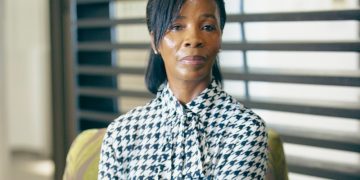
Are smart cities the best urban development models for cities in developing countries? Can Namibia afford to create a smart city, if the National Broadband policy has not been implemented nor is there equitable internet access and quality in Windhoek?
Smart cities have been key drivers to inequality and environmental degradation. More and more urban designs are catering for the “rich”, whilst ignoring the poor and marginalised residence.
Cugurullo, an Assistant Professor in Smart and Sustainable Urbanism, further outlines the real reason for smart cities, when he said: “smart cities are philosophical ideas, whose real objective is to replicate traditional capitalist strategies of urbanisation”.
The question we should ask is, could Cugurullo’s statement be true?
There are examples of smart cities that have created wider inequality gaps and destroyed the ecological environment of a city. These cities include Abu Dhabi, Rio de Janeiro, Manchester, Detroit and Ordos. What all these cities have in common is the fact that their urban development agenda was placed in the hands of greedy multinational companies and developers whose short term, pro-economic and capitalists’ interests had disastrous impact on the residences and the environment.
The multinationals companies, who are usually the biggest funders for smart city initiatives, make money and ship it out of the country. Projects that aim to improve the lives of the residence and reduce energy waste pollution, for example, are side-lined, because they do not produce the short-term profits required.
Furthermore, the smart solutions, which the multinationals invest in are mostly applied to office buildings where they operate from or have an interest in, whist ignoring residential areas. Governments of these cities lower tax to attract foreign investment and lower environmental requirements to make it easier for the multinationals and developers to promote their economic agenda.
As we speak cities like Ordos, are now termed ghost towns, because the so-called smart city initiative lead to deurbanisation. Given the effects that smart city models have on cities, would the City of Windhoek still want to initiate such a model? Who will benefit from this model, if there is already huge disparities between the rich and poor in Windhoek?
With climate change issues gaining prominence, for example, perhaps the City of Windhoek should consider building a resilience city, not a smart city?
Perhaps the City could garner insights on how countries like Denmark and Netherlands use network governance and citizen participation to improve their urban development agenda. Countries who involve their residence in the planning and design of their suburbs receive more by-in and collaboration from their residence. A good example of this, is in Copenhagen.
Urban developers in Copenhagen actively involve their residence in the design of their suburbs. They even consider accommodating foreign nationals, like Muslim women, who have immigrated there for a better life.
The City of Windhoek through its several network governance structures is trying to be a caring city, however it is faced with some challenges. The recent challenge was the theft of the 400 trees and 100 flowers of boxes that were donated by First National Bank (FNB) to the City of Windhoek on Arbor Day.
Although FNB had great intentions in making the donation, as greenways and parks are needed that side of the city. Was it the right time to plant the trees? Did FNB and the City of Windhoek engage the people from that area, whether donating those trees was what that community needed at this time?
Yes, at first glance, the theft of the trees was insidious and portrayed ungratefulness. I am sure comments like, “you see black people do not know how to handle beautiful things” were made. However, the theft is just a symptom.
Through citizen participation and network governance structures, perhaps the root of the problem can be addressed. Otherwise, the City of Windhoek and its partners’ good work will continue to be overshadowed. Today is stealing trees, tomorrow?
*Morna Ikosa is a seasoned communications and stakeholder engagement consultant. With a specific affinity for sustainable development. Find her on LinkedIn or email her at micommunicationscc@gmail.com.













